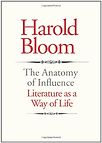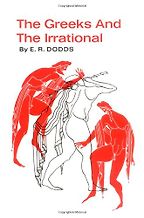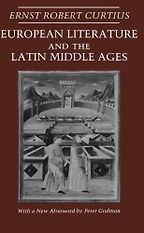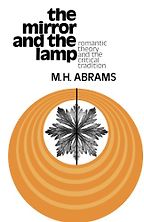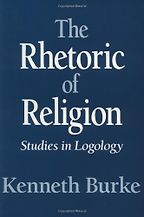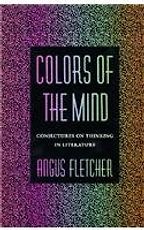How has the profession changed since you began teaching literature?
I’ve been practicing literary criticism for more than 60 years. In 1976, I resigned from the once splendid Yale English department, which I had joined in 1955, to protest the decline in aesthetic and cognitive standards in the profession. I became a professor of the humanities, a department of one. I have been the pariah of the profession for the last 45 years.
I maintain canonical standards for the study and appreciation of literature. I practice philology and knowledge of the history of language. I do not give in to political considerations, however they mask themselves. All this business about gender, social class, sexual orientation and skin pigmentation is nonsense. I’m 81. I’m not prepared to temporise any more. I’ve been prophesying like Jeremiah since 1968, warning the profession that it was destroying itself. And it has. There are fewer and fewer people teaching English, or any other kind of literature, in American universities. Students don’t wish to study garbage and that’s all they’re offered.
Forgive me for sounding so strong on this issue. In fact, I’m tired of this polemic so let us change the subject.
Of all the books you’ve written, The Western Canon arguably made the boldest imprint on the common reader.
I suppose it is true that, facing the decline of a literate audience and desperately trying to battle for canonical standards, my books that have had the widest direct impact were the ones that I addressed to “the common reader” – which was [Samuel] Johnson’s great designation of what a reader should be. I regard myself as a common reader, and I address myself to common readers throughout the world. My books that have made the most impact, and were meant to, are The Western Canon, a huge book called Shakespeare: The Invention of the Human, a shorter book called How to Read and Why and an enormous book called Genius: A Mosaic of One Hundred Exemplary Creative Minds. But that phase of my work is meant to culminate in my new book, The Anatomy of Influence: Literature As A Way of Life.
Now for the books of others, beginning with a look at the literature of antiquity. Tell us about ER Dodds’s The Greeks and the Irrational.
You asked me to list five books that continue to influence the profession. But, as I made clear to you, I’m not interested in that any more. I’m interested in the books that have influenced me and will go on influencing me – as I work and teach and write – until I die. Those books include The Greeks and the Irrational, which still has an ongoing influence on me, particularly in my study of Yeats, Hart Crane and other great poets.
“I’m a heretic. I like to say, ‘There is no God but God and his name is William Shakespeare.’”
The Greeks and the Irrational is an exploration of the daemon, which is Christianised and reduced to demons or devils. But the daemon was a concept, as Dodds makes beautifully clear, having to do with the creative forces in the individual, which are deeper and more pervasive than what you might want to call the mere conscious. Though it’s not the unconscious in the Freudian sense, the daemon is the creative spirit. It is, as [Ralph Waldo] Emerson called it, “the God within”.
Dodds applied the psychological theories of the early 20th century to understanding Greek literature. You undertook a similar endeavour in The Anxiety of Influence. Give us a précis of the theory of literary evolution you developed in that book.
Dodds was profoundly influenced by Freud. I also was deeply influenced by Freud. And for many, many years I was writing a vast commentary on Freud called Transference of Authority. I gave it up because of the ambivalence I began to develop towards him. If I live long enough, I may go back to the manuscript, which is yellowing up in the attic. But at 81, one doesn’t know how much time there is, and there are other things I’m writing and want to write.
The theory of literary evolution I developed (which is refined, broadened and made more understandable to the common reader in The Anatomy of Influence) is that literary inheritance, literary genealogy – the cavalcade that takes us from one writer to another, throughout the ages right down to the present moment – is by no means linear. It is based upon agonistic competition. I use the Shakespearean term “misprision”, which is a kind of deliberate creativeness. The later work overturns an earlier work in order to get free of it. The new poem, new story, new drama or new novel is a creative misreading of the work that engendered it.
The next book on your list, chronologically, is European Literature and the Latin Middle Ages.
This is, I think, the finest work of literary scholarship in my time, by the great German philologist Ernst Robert Curtius. It is an extraordinary study of the continuity of European literature, from Homer and the other Greeks, on through Virgil and the great Latin writers, to a culmination in Dante, and moving beyond to a consideration of a long tradition that concludes with Goethe.
Curtius traces the evolution of language in Italy, in France and in Spain. The middle ages depended heavily on Latin – the vernaculars developed out of it. The greatest instance is Dante, who wrote some of his prose works in Latin but who chose the Tuscan vernacular for much of his work. By his choice, he made it the vehicle for poets who come after him, Boccaccio and Petrarch down through Leopardi and Ungaretti. Without Dante, the language that we all call Italian would not have happened. I prefer Curtius on Dante to the discussion of Dante by any other critic, because he sees that Dante is creating a myth, or even a gnosis, of his own. Ultimately, Aristotle, Augustine and Aquinas are nowhere near as important as Dante.
It is from Curtius that I have learned – and others go on learning – what literature is, and why I myself would call it a way of life and a way of thought.
In his preface, Curtius calls literature “a reservoir of spiritual energies through which we can flavour and ennoble our present-day life”. Your introduction to The Anatomy of Influence shared a similar view.
I’m so deeply influenced by Ernst Robert Curtius’s magnificent book that I probably do owe it to him. But I suppose it all depends how you define “spiritual”. For me, the two great figures of Sir John Falstaff and Hamlet – the great sceptic and nihilist in Shakespeare – offer me spiritual entities of the most intense kind. But then, I’m a heretic. I like to say, “There is no god but god and his name is William Shakespeare.”
Do you individuate from your precursors in your own work?
That’s what we’re talking about today. I regard ER Dodds, whom I knew personally, as a strong precursor. I never met Ernst Robert Curtius, but we corresponded and I regard him as a forerunner. And then the author of the third book was my own marvellous teacher.
MH Abrams, who wrote The Mirror and the Lamp.
I was a Cornell freshman of 17 when I met Meyer Howard Abrams, MH Abrams, who to this day is my dear friend Mike. I’ve just turned 81, Mike has just turned 99, but he’s alive and well in Ithaca, New York, and still reads and writes with real power. The Mirror and the Lamp, his great book, is a study of the relation between romantic critical theory and a classic of literary scholarship. What MH Abrams demonstrates in The Mirror and the Lamp is the way in which we turned from the renaissance, and classical notions of art as a reflection of nature. Hence the mirror to art as an individual daemonic form, which, like a lamp, sends out its own light, its own ideas and its own exuberance.
Abrams is also thought of as a canoniser. He conceived of The Norton Anthology of English Literature in 1962.
I know. He also wrote another magnificent work of scholarly criticism which has deeply influenced me, Natural Supernaturalism, which carries on the argument of The Mirror and the Lamp. He remains a father figure to me, 18 years older than I am, a mentor and close personal friend.
Your fourth choice is The Rhetoric of Religion.
This is by a forefigure who became a close personal friend and my ultimate mentor, the great American literary theorist Kenneth Burke. His finest and last book, it is a study of Saint Augustine, but even more importantly a study of how the metaphors of the books of Genesis, and the Hebrew bible, individuate themselves. Kenneth Burke was the most remarkable student of rhetoric – that is to say of persuasive argument conducted through tropes and metaphors – of the 20th century. I miss him a great deal. He’s been dead for a number of years, though he lived until 96. I hope Mike Abrams goes considerably past that.
Colors of the Mind is the fifth and final book.
Angus Fletcher is my direct contemporary, just a few weeks older than I am, and my lifelong friend. He is alive and well, and I’m glad to say still at work, and he is about as dear a friend as I’ve had from 1950 until now. He’s written many powerful books, but the one that has influenced me most is this collection of brilliant essays, subtitled “Conjectures on Thinking in Literature”.
What Angus Fletcher taught me, and teaches others, is a very complex matter of what it means for thinking to take place in a literary work. It’s the question of how Shakespeare thinks in his plays and sonnets, of how Henry James thinks in his late, intricate work, or of how Emily Dickinson thinks in her extraordinary poems. I’ve tried to extend Angus Fletcher’s way of looking at the mind as represented in art to the greatest American poet, Walt Whitman, who thinks through metaphors. My real subject, increasingly, is metaphorical thinking – which is how Shakespeare and all poets and novelists and storywriters think.
Those are the five books. Four of them are by personal friends, and one is by someone I corresponded with. The personal element may have enhanced their influence on me, but I very strongly recommend all five books, not just to whatever real students we still have of literature (and indeed of the other arts) but to common readers who wish to be more deeply educated.
You’ve observed that, with a few exceptions, criticism has a short shelf life.
Well, there are indeed a few shining exceptions. There’s Dr Samuel Johnson. There’s William Hazlitt, whom I reread all the time. There’s another particular hero of mine, Walter Pater, the great aesthetic critic of the later 19th century. There is my old friend Kenneth Burke.
If I were to be asked, “Harold, can anything in your life’s work survive?” I would not know what to answer. I would think that if anything should survive, it would be this new book, because it is my summa. It is my swansong on the question that has occupied me throughout my long life, which is the question of literary and poetic influence. I’ve written it and rewritten it and cut it down. If anything by me deserves to survive, it’s The Anatomy of Influence. Whether it will survive, I have grave doubts. Only a few literary critics survive. Whether I will be one, I do not know.
What are the rewards of reading, and of literary scholarship?
One must read, try to possess by memory, and be possessed by the very best that has been imagined, cognitively apprehended and expressed powerfully. Thinking clearly and well is based upon memory. Unless you have read and absorbed the best that can be read and absorbed, you will not think clearly or well, and democracy will not survive.
We have this horrible contemporary phenomenon in the Tea Party – a real menace not only to America but to the world. Because if it goes on like this, they will destroy our economy and they will destroy America. They have no democratic vision, and I don’t mean with a capital “D”, I mean with a small “d”. They frighten me. They’re like the early followers of Adolf Hitler, and I’m willing to be quoted on that. They are a sickening phenomenon. That is because they have not read deeply and widely enough. But then maybe they’re not to blame, because American education – even in elite universities – has become a scandal in my opinion. It has committed suicide.
Five Books aims to keep its book recommendations and interviews up to date. If you are the interviewee and would like to update your choice of books (or even just what you say about them) please email us at [email protected]
Five Books interviews are expensive to produce. If you've enjoyed this interview, please support us by donating a small amount.

